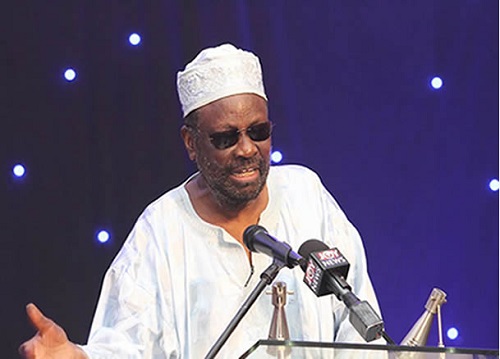THE United Nations Organisation has been holding a conference at its headquarters in New York to mark “World Water Day 2023.”
The objective of the conference has been to find ways of “accelerating change to solve the water and sanitation crisis” facing Planet Earth.
According to the UN, “dysfunction throughout the water cycle, undermines progress on all major global issues — from health to hunger, gender equality to jobs, education to industry, and disasters to peace.”
Aware of this, the world committed to “Sustainable Development Goal (SDG) 6” in 2015 as part of the 2030 Agenda”. The main aim of that agenda was a “promise that everyone would have safely-managed water and sanitation by 2030.”
But the notes in stark terms that “Right now, [the world is] seriously off-track. Billions of people and countless schools, businesses, healthcare centres, farms, and factories are being held back because their human rights to water and sanitation still need to be fulfilled.”
Therefore, there is “an urgent need to accelerate change – to go beyond ‘business as usual,” says the UN.
The UN reveals that the “latest data show that governments must work, on average, four times faster” to meet the objectives specified in Agenda SDG 6 on time. However, “this is not a situation that any single actor or group can solve. Water affects everyone, so we need everyone to take action.”
To encourage countries to put in greater efforts to arrest the serious water situation in the world, the UN has launched a global campaign entitled “Be the change!”.
The campaign encourages people to take action in their own lives to change “how they use, consume and manage water.”
Promises in relation to the campaign made by individuals and communities “will contribute to the Water Action Agenda, alongside larger commitments from governments, companies, organizations, institutions, and coalitions”.
The UN believes that, “2023 is a particular year for commitments regarding the use of water and its sanitation”, because the celebration of World Water Day in 2023 “coincides with the start of the UN 2023 Water Conference” that takes place in New York between March 22 and 24.
The Conference was regarded as “a once-in-a-generation opportunity to unite the world around solving the water and sanitation crisis.”
With that objective in mind, governments and stakeholders from all levels of society were asked to collaborate to make voluntary commitments to accelerating progress on the Agenda of SDG 6 and other internationally-agreed water-related goals and targets, that would, “form the Water Action Agenda, designed to deliver rapid, transformative change in the remainder of this decade.”
Data gathered by the UN show that: 4 million people die annually and 74 million will have their lives shortened by diseases related to poor water, sanitation and hygiene. (Source: WHO 2022)
Today, 1 in 4 people – 2 billion people worldwide – lack safe drinking water. (Source: WHO/UNICEF 2021) and almost half of the global population –3.6 billion people –lack safe sanitation. (WHO/UNICEF 2021)
Globally, 44 per cent of household wastewater is not safely treated. (Source: UN-Water 2021)
And, finally, “global water demand (in water withdrawals) is projected to increase by 55 per cent by 2050. (Source: OECD 2012)
The United Nations publishes a special World Water Development Report (WWDR) on water and sanitation issues. The publication, in its 2023 edition, outlines policy recommendations for decision makers, and offers “best practices and in-depth analyses.”
Since 1993, an annual World Water Day has been marked on 22 March, with the aim of raising awareness and inspiring action to tackle the water and sanitation crisis. It is about taking action to tackle the global water crisis of the 2.2 billion people living without access to safe water.
Justifying the observance of “International Days” such as World Water Day, the UN says: “International days and weeks are occasions to educate the public on issues of concern, to mobilize political will and resources to address global problems, and to celebrate and reinforce achievements of humanity.
“The existence of international days predates the establishment of the United Nations, but the UN has embraced them as a powerful advocacy tool.”
It is to be hoped that the reports and views expressed at World Water Day 2023 will assist in making Ghanaians, in particular, more aware of the risks they run in allowing ‘galamseyers’ to run riot all over their countryside, looking for gold and killing rivers and other water-bodies in the process.
Whilst the international community, through the UN, is seeking to help the billions of people who are losing water involuntarily through natural causes (such as climate change) it is absurd that a country, such as Ghana, that has been blessed with excellent rivers like Ankobra, Prah, Offin, Tanoh, Bia, Densu and Birem, should allow selfish and ruthless gold-diggers to use excavators and bulldozers to destroy these great water-bodies that water Nature has generously bequeathed to us.
Even more astonishing is the willingness of Ghanaian galamseyers to use mercury, arsenic and other chemicals to poison and pollute the water that they know their fellow countrymen need to drink in order to live.
It is a madness which every community in Ghana must resolve to uproot – with or without Central Government assistance.
By Cameron Duodu


